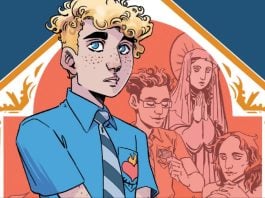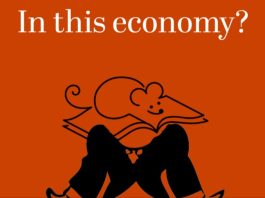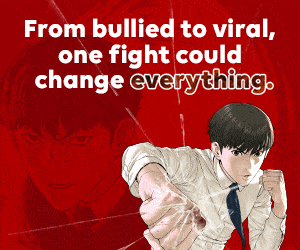"Make Mine Me": Haspiel on the freelancer's life
Once again, Dean Haspiel blogs about the difficulties faced by freelancers in the current event/editorially-driven superhero world in a piece plaintively called Make Mine Me:
INTERVIEW: Brian K. Vaughan on SAGA, LOST, Twitter and more
[Although one of the best selling comics authors of the past decade, Brian K. Vaughan keeps a low profile—you won't find him writing in his blog or posting previews on his social media platform of choice. He also tends to take big breaks from the comics format to concentrate on his high profile film and TV work. But that was until this week's debut issue of SAGA came out. Already creating buzz and selling out, the collaboration with Fiona Staples is one of a several prominent new comics this year featuring creators moving from the Big Two to the creator-owned experience. And Vaughan has been making the interview and show rounds because that's how you sell comics in this day and age.
He might not even need it. The early reviews are stunningly positive. This interview was conducted a few months ago, just as the book was being solicited, and since we hadn't talked in a while, it was a chance to catch up on a few other matters, as you'll see.]
New Alan Moore barbaric yawp: two wrongs don't make a right
A new Alan Moore interview, a new round of controversy! This time it's a 90-minute chat with Seraphemera Magazine that reveals Moore's feelings on BEFORE WATCHMEN—he doesn't like it—their creative teams—uncreative—and so on. He also addresses the "Moore Hypocrisy" with which fans love to cut him down to size: if touching the Watchmen is so bad how come you can write LEAGUE OF EXTRAORDINARY GENTLEMEN? Yeah, answer that, big boy!
Let's learn about life with the cartoonists
Recent interviews with a bunch of notable cartoonists reveals a treasure trove of advice on life and career.
More Success in Comics!
The first post was so popular, here's a sequel! More of Alan Gardner's reports from the Success in Comics seminar.
REVEALED!! Success in Comics
Despite all the gloom and doom talk in the biz of late, there is still room for Success in Comics, Alan Gardner writes. In fact they held a whole seminar devoted to the topic!
Doujinshi follow-up
After my long post yesterday, there were a few loose ends and misstatements and yet more viewpoints that deserved some linkage.
Comics Crisis: Doujinshi Nation
Wow! All hell has broken loose in comic book-land! Last week's surfeit of Aquarian-born comics creators created a busy circuit of birthday parties, and if I had a dime for every time the name "Gary Friedrich" came up, his legal fees would be paid.
IP Wars are breaking out everywhere.Why here, why now? As always, follow the money. The most visible and lucrative segment of comics industry has, since the great distribution collapse of the '90s, been primarily in the IP business. Entire comics companies have sprung up just to create movie storyboards masquerading as comics. Big media corporations outfit swanky offices just for the purpose of developing existing IP. It's become a cottage industry. No wonder then, that controlling and profiting from IP has become THE major preoccupation of the comics industry from the CEO selling movies to the colorist selling prints.
Bryan Lee O'Malley's Scott Pilgrim Valentine pin-up as a reflection of the week in...
As we end this week which has been obsessed with copyright, IP and the intersection of licensing and art—you should have heard the talk at FMB's b-day bash on Wednesday: wall to wall Gary Friedrich—we'll be the 2,649th persson to link to Bryan Lee O'Malley's Valentine's Day treat, a pinup of Ramona Flowers, Kim PIne, Lisa Miller and Wallace Wells, which, while quite notable on its own, is also a reminder of many things. For instance, as much as SCOTT PILGRIM has become a cult unto itself, and as joyful as it is to see new art with these characters, and it would be the easiest thing in the world for O'Malley to exploit the desire for more Pilgrim, instead he's been concentrating on his NEW project, Seconds.
What the Gary Friedrich/Disney/Marvel case means for comics creators
You can be sympathetic to Gary Friedrich's current situation—older, broke and in bad health—while still being alarmed over all the issues his court case has raised. My own email and IMs are full of variant views on it. So let's trace the evolution of this a bit.
Are cartoonists doomed to die poor and homeless while pirates dance on their graves?
Even as the economy shows fitful signs of flickering back to life, the comics economy, which was "too small to fail" to really take much of a hit during the Great Recession, is still puddling along, under capitalized, under-recognized and with even the greatest cartoonists prone to spells of belt tightening. Comics have been traditionally immune to the effects of a recession—"cheap entertainment does well in bad times!" we've heard time and again—but the corollary is also true: Economic boom times rarely touch comics.
During the late '90s and the first dot.com boom, one of the greatest eras of general prosperity in American history, comics were going through their WORST slump since the end of newsstand distribution, with sales numbers so low executives were crying over them. And then, paradoxically, comics began to do better even during the mini-recession following 9/11 and the end of the dot.com bubble.
Sean Murphy: You need a 5 Year Plan
Artist Sean G. Murphy (Joe the Barbarian) has posted a piece on his DA page called
5 Year Plan -- it's about planning for the future -- something very few young cartoonists seems to have the courage to do. I recently told a talented young cartoonist "Keep doing what you love until someone pays you for it" -- which is pretty basic "follow your bliss" advice. Murphy's is a little more practical:















